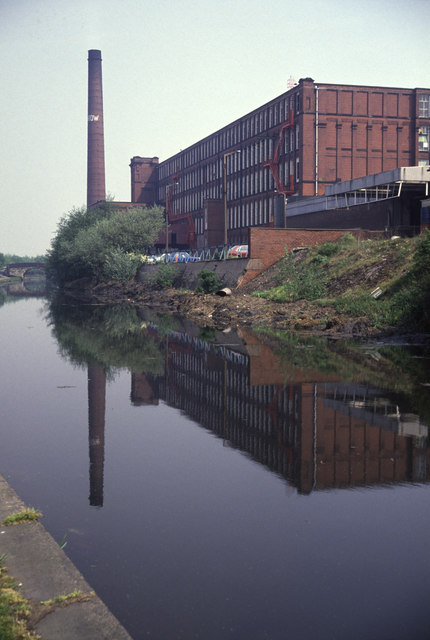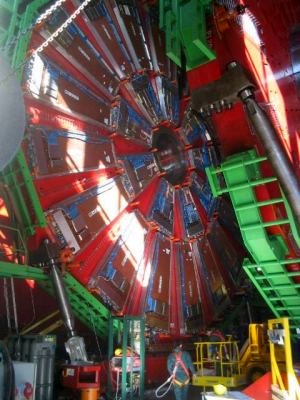|
John Albert Bright
John Albert Bright (1848 – 11 November 1924) was an English industrialist and Liberal Unionist and Liberal politician. Family and education J A Bright was the eldest son of the Liberal reformer, orator and statesman, John Bright. His family were steeped in Radical and reforming politics. His father’s brother, Jacob Bright was Liberal MP for different seats in Manchester between 1867 and 1895. His aunt was Priscilla Bright McLaren (1815-1906) a dedicated campaigner for women’s rights and the wife of Duncan McLaren the Liberal MP for Edinburgh from 1865 to 1881. His brother, William Leatham Bright (1851-1910), was Liberal MP for Stoke-on-Trent from 1885 to 1890. As a prominent member of the Society of Friends, John Bright employed Lydia Rous as a teacher for his children. In time he sent his son to the Quaker Grove House School, in Tottenham, London. John Albert later attended University College, London, where he won a prize for experimental physics and gained his B.Sc ... [...More Info...] [...Related Items...] OR: [Wikipedia] [Google] [Baidu] |
Stoke Upon Trent (UK Parliament Constituency)
Stoke-upon-Trent was a parliamentary borough in Staffordshire, which elected two Member of Parliament (United Kingdom), Members of Parliament (MPs) to the House of Commons of the United Kingdom, House of Commons from 1832 until 1885, and then one member from 1885 until 1918, when the borough was enlarged, renamed Stoke-on-Trent, and split into three single-member constituencies. History Stoke-upon-Trent was established as a borough by the Great Reform Act of 1832 to represent the Staffordshire Potteries, one of the most populous urban areas in England which had previously had no separate representation. The provisional contents, confirmed by the Parliamentary Boundaries Act 1832, formed a contiguous area comprising the Township (England), townships of Tunstall, Staffordshire, Tunstall, Burslem, Hanley, Staffordshire, Hanley, Shelton, Staffordshire, Shelton, Penkhull with Boothen (containing the town of Stoke-upon-Trent), Lane End, Staffordshire, Lane End, Longton, Staffordshire, ... [...More Info...] [...Related Items...] OR: [Wikipedia] [Google] [Baidu] |
School Boards In England And Wales
School boards were public bodies in England and Wales between 1870 and 1902, which established and administered elementary schools. School boards were created in boroughs and parishes under the Elementary Education Act 1870 following campaigning by George Dixon, Joseph Chamberlain and the National Education League for elementary education free from Anglican doctrine. Education was still not free of fees. Members were directly elected, not appointed by borough councils or parishes. Each board could: *raise funds from a rate *build and run non-denominational schools where existing voluntary provision was inadequate *subsidise church schools where appropriate *pay the fees of the poorest children *if they deemed it necessary, create a by-law making attendance compulsory between ages 5–13 - until the Elementary Education Act 1880 when it became compulsory for all. *were not to impose any religious education, other than simple Bible reading Unusually for the time, women w ... [...More Info...] [...Related Items...] OR: [Wikipedia] [Google] [Baidu] |
Lancashire
Lancashire ( , ; abbreviated Lancs) is the name of a Historic counties of England, historic county, Ceremonial County, ceremonial county, and non-metropolitan county in North West England. The boundaries of these three areas differ significantly. The non-metropolitan county of Lancashire was created by the Local Government Act 1972. It is administered by Lancashire County Council, based in Preston, Lancashire, Preston, and twelve district councils. Although Lancaster, Lancashire, Lancaster is still considered the county town, Preston is the administrative centre of the non-metropolitan county. The ceremonial county has the same boundaries except that it also includes Blackpool and Blackburn with Darwen, which are unitary authorities. The historic county of Lancashire is larger and includes the cities of Manchester and Liverpool as well as the Furness and Cartmel peninsulas, but excludes Bowland area of the West Riding of Yorkshire transferred to the non-metropolitan county ... [...More Info...] [...Related Items...] OR: [Wikipedia] [Google] [Baidu] |
Justice Of The Peace
A justice of the peace (JP) is a judicial officer of a lower or '' puisne'' court, elected or appointed by means of a commission (letters patent) to keep the peace. In past centuries the term commissioner of the peace was often used with the same meaning. Depending on the jurisdiction, such justices dispense summary justice or merely deal with local administrative applications in common law jurisdictions. Justices of the peace are appointed or elected from the citizens of the jurisdiction in which they serve, and are (or were) usually not required to have any formal legal education in order to qualify for the office. Some jurisdictions have varying forms of training for JPs. History In 1195, Richard I ("the Lionheart") of England and his Minister Hubert Walter commissioned certain knights to preserve the peace in unruly areas. They were responsible to the King in ensuring that the law was upheld and preserving the " King's peace". Therefore, they were known as "keepers of th ... [...More Info...] [...Related Items...] OR: [Wikipedia] [Google] [Baidu] |
Cotton Mill
A cotton mill is a building that houses spinning (textiles), spinning or weaving machinery for the production of yarn or cloth from cotton, an important product during the Industrial Revolution in the development of the factory system. Although some were driven by animal power, most early mills were built in rural areas at fast-flowing rivers and streams using water wheels for power. The development of viable Watt steam engine, steam engines by Boulton and Watt from 1781 led to the growth of larger, steam-powered mills allowing them to be concentrated in urban mill towns, like Manchester, which with neighbouring Salford, Greater Manchester, Salford had more than 50 mills by 1802. The mechanisation of the spinning process in the early factories was instrumental in the growth of the machine tool industry, enabling the construction of larger cotton mills. Joint stock company, Limited companies were developed to construct mills, and the trading floors of the Manchester Royal Excha ... [...More Info...] [...Related Items...] OR: [Wikipedia] [Google] [Baidu] |
Rochdale
Rochdale ( ) is a large town in Greater Manchester, England, at the foothills of the South Pennines in the dale on the River Roch, northwest of Oldham and northeast of Manchester. It is the administrative centre of the Metropolitan Borough of Rochdale, which had a population of 211,699 in the 2011 census. Located within the historic boundaries of the county of Lancashire. Rochdale's recorded history begins with an entry in the Domesday Book of 1086 under "Recedham Manor". The ancient parish of Rochdale was a division of the hundred of Salford and one of the largest ecclesiastical parishes in England, comprising several townships. By 1251, Rochdale had become important enough to have been granted a Royal charter. Rochdale flourished into a centre of northern England's woollen trade, and by the early 18th century was described as being "remarkable for many wealthy merchants". Rochdale rose to prominence in the 19th century as a mill town and centre for textile manufactur ... [...More Info...] [...Related Items...] OR: [Wikipedia] [Google] [Baidu] |
Bachelor Of Science
A Bachelor of Science (BS, BSc, SB, or ScB; from the Latin ') is a bachelor's degree awarded for programs that generally last three to five years. The first university to admit a student to the degree of Bachelor of Science was the University of London in 1860. In the United States, the Lawrence Scientific School first conferred the degree in 1851, followed by the University of Michigan in 1855. Nathaniel Southgate Shaler, who was Harvard's Dean of Sciences, wrote in a private letter that "the degree of Bachelor of Science came to be introduced into our system through the influence of Louis Agassiz, who had much to do in shaping the plans of this School." Whether Bachelor of Science or Bachelor of Arts degrees are awarded in particular subjects varies between universities. For example, an economics student may graduate as a Bachelor of Arts in one university but as a Bachelor of Science in another, and occasionally, both options are offered. Some universities follow the Oxfor ... [...More Info...] [...Related Items...] OR: [Wikipedia] [Google] [Baidu] |
Experimental Physics
Experimental physics is the category of disciplines and sub-disciplines in the field of physics that are concerned with the observation of physical phenomena and experiments. Methods vary from discipline to discipline, from simple experiments and observations, such as Galileo's experiments, to more complicated ones, such as the Large Hadron Collider. Overview Experimental physics encompasses all the disciplines of physics that are concerned with data acquisition, data-acquisition methods, and the detailed conceptualization (beyond simple thought experiments) and realization of laboratory experiments. It is often contrasted with theoretical physics, which is more concerned with predicting and explaining the physical behaviour of nature than the acquisition of empirical data. Although experimental and theoretical physics are concerned with different aspects of nature, they both share the same goal of understanding it and have a symbiotic relationship. The former provides data abou ... [...More Info...] [...Related Items...] OR: [Wikipedia] [Google] [Baidu] |
University College, London
, mottoeng = Let all come who by merit deserve the most reward , established = , type = Public research university , endowment = £143 million (2020) , budget = £1.544 billion (2019/20) , chancellor = Anne, Princess Royal(as Chancellor of the University of London) , provost = Michael Spence , head_label = Chair of the council , head = Victor L. L. Chu , free_label = Visitor , free = Sir Geoffrey Vos , academic_staff = 9,100 (2020/21) , administrative_staff = 5,855 (2020/21) , students = () , undergrad = () , postgrad = () , coordinates = , campus = Urban , city = London, England , affiliations = , colours = Purple and blue celeste , nickname ... [...More Info...] [...Related Items...] OR: [Wikipedia] [Google] [Baidu] |
Tottenham
Tottenham () is a town in North London, England, within the London Borough of Haringey. It is located in the ceremonial county of Greater London. Tottenham is centred north-northeast of Charing Cross, bordering Edmonton to the north, Walthamstow, across the River Lea, to the east, and Stamford Hill to the south, with Wood Green and Harringay to the west. The area rapidly expanded in the late-19th century, becoming a working-class suburb of London following the advent of the railway and mass development of housing for the lower-middle and working classes. It is the location of Tottenham Hotspur Football Club, founded in 1882. The parish of Tottenham was granted urban district status in 1894 and municipal borough status in 1934. Following the Second World War, the area saw large-scale development of council housing, including tower blocks. Until 1965 Tottenham was in the historic county of Middlesex. In 1965, the borough of Tottenham merged with the municipal boroughs o ... [...More Info...] [...Related Items...] OR: [Wikipedia] [Google] [Baidu] |
Grove House School
Grove House School was a Quaker school in Tottenham, United Kingdom. School The school was established in 1828 as a boarding school for 75 boys of the Quaker community, initially under Thomas Binns. One of its founders was Josiah Forster, who had attended the Quaker school his grandfather had founded in 1752, Forster's School, also in Tottenham. Its curriculum was advanced for its time, and it did not use corporal punishment. After languishing around 1850, it was enlarged by Arthur Robert Abbott, who admitted non-Quaker boys but after buying the school in 1877, closed it, and took Anglican orders. It was located on the south side of Tottenham Green next to the building of a former Quaker school which had closed some two years before its opening. The site was acquired for Tottenham Polytechnic which became the College of North East London (now the College of Haringey, Enfield and North East London following a merger with Enfield College August 2009). In 1890, the Quakers were to ... [...More Info...] [...Related Items...] OR: [Wikipedia] [Google] [Baidu] |





.jpg)